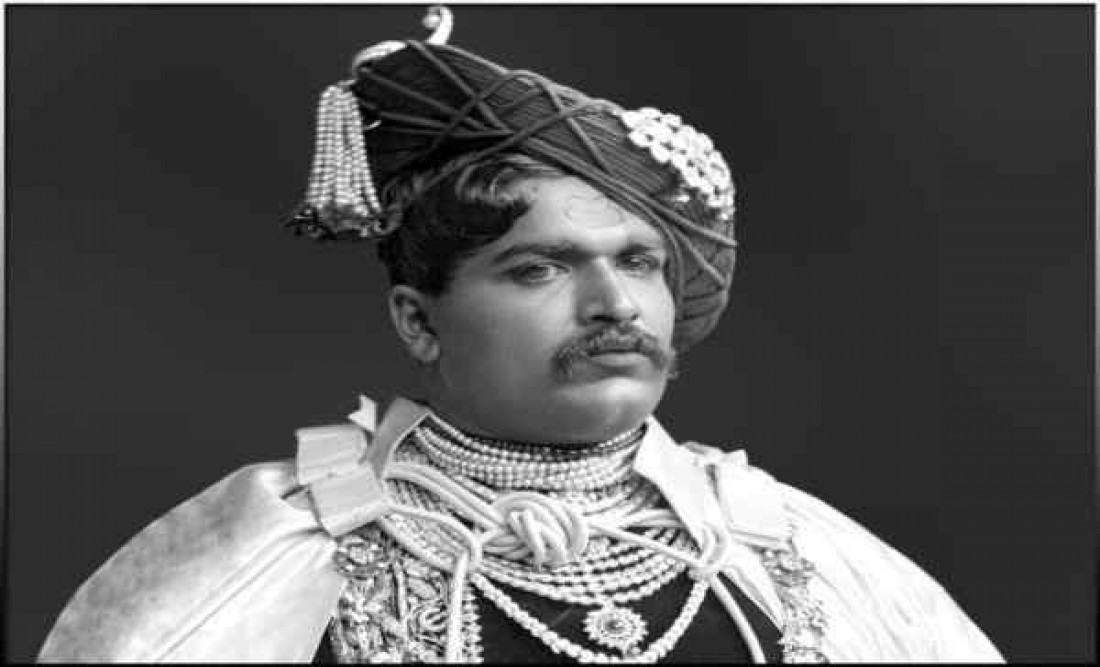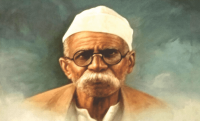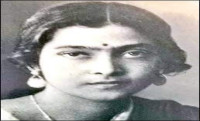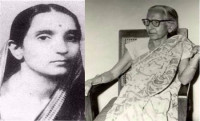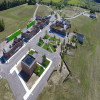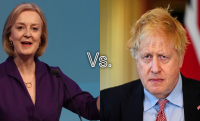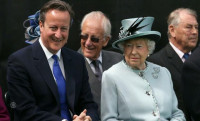Known as a true democrat and social reformer in India, Chhatrapati Sahu Maharaj is still famous as an invaluable gem in the history of Kolhapur. Chhatrapati Sahu Maharaj was such a person who, despite being a king, understood the suffering of the downtrodden and the oppressed class and always kept closeness to them. He started the process of providing free education to the children of the downtrodden class. Established hostels for poor students and ordered to provide shelter to outside students. Child marriage was strictly prohibited during the rule of Shahu Maharaj. He raised his voice in favor of inter-caste marriage and widow remarriage. Maharaj Sahu had to face severe criticism for these activities. Sahu Maharaj was influenced by Jyotiba Phule and was also the patron of Satya Shodhak Samaj, an organization formed by Phule for a long time.
Early Life of Chhatrapati Sahu Maharaj
Chhatrapati Sahu Maharaj was born on July 26, 1874 AD. His father's name was Shrimant Jaisingh Rao Abasaheb Ghatge. The childhood name of Chhatrapati Sahu Maharaj was Yashwantrao. Shivaji IV, a descendant of the second son of Chhatrapati Shivaji Maharaj (I), ruled in Kolhapur. When Shivaji IV was killed due to British conspiracy and the betrayal of his Brahmin Diwan, his widow Anandibai adopted Yashwantrao, son of her vassal Jai Singh Rao Abasaheb Ghatge, in March, 1884 AD. In his childhood, Yashwantrao had to handle the throne of Kolhapur princely state as Sahu Maharaj. Although the control of the state came in his hands after a long time i.e. on April 2, 1894.
Marriage of chhatrapati sahu maharaj
Let us tell you that Chhatrapati Sahu Maharaj was married to Laxmibai, daughter of Maratha Sardar Khanvikar of Baroda.
Education of Chhatrapati Sahu Maharaj
Talking about the education of Sahu Maharaj, his education was done in Rajkot's Rajkumar Mahavidyalaya and Dharwad. He became the king of the princely state of Kolhapur in 1894 AD. He saw that a section of the society was getting crushed due to casteism. So he made a plan for the upliftment of Dalits and started implementing it. Chhatrapati Sahu Maharaj opened schools and built hostels for the Dalit and backward caste people. Due to this, education was promoted in them and social status started changing. But the upper class people opposed it. They started considering Chhatrapati Sahu Maharaj as their enemy. Even his priest said that - you are a Shudra and Shudra does not have the right to listen to the mantras of the Vedas. Chhatrapati Sahu Maharaj faced all this opposition firmly.
Establishment of schools and hostels
If the minister is a Brahmin and the king is also a Brahmin or a Kshatriya, then no one had any problem. But there was a problem if a Vaishya or a Shudra person was sitting on the king's chair. Chhatrapati Sahu Maharaj used to come in the castes considered Shudras, not Kshatriyas. The representation of the backward castes in the administration of the princely state of Kolhapur was undoubtedly his innovative initiative. Chhatrapati Sahu Maharaj did not only do this, but he took the initiative to open separate government institutions for all sections of the society including backward castes, Marathas, Mahars, Brahmins, Kshatriyas, Vaishyas, Christians, Muslims and Jains. Shahu Maharaj issued orders to open schools and hostels for them. Schools and hostels on the basis of caste may seem uncomfortable, but no doubt this was a unique initiative to educate castes which were neglected for centuries. He had made special efforts for the education of the children of Dalit-Backward castes. He provided financial assistance for higher education. The results of Sahu Maharaj's efforts were visible in his rule itself. Significant progress was made in the number of boys and girls of backward castes studying in schools and colleges. As the Maharaja of Kolhapur, Sahu Maharaj worked for all castes and classes. He also did a lot of work for Prarthana Samaj. He gave the management of Rajaram College to Prarthana Samaj.
Reservation system
In the middle of 1902, Shahu Maharaj had gone to England. From there, he issued an order and reserved 50 percent posts of government and administration under Kolhapur for backward castes. Due to this order of the Maharaj, the brahmins of Kolhapur fell like a curse. It is noteworthy that in the year 1894, when Shahu Maharaj took over the reins of the state, Brahmin officers were appointed on 60 of the total 71 posts in the general administration of Kolhapur. Similarly, out of 500 posts of clerical posts, only 10 were non-Brahmins. In 1912, out of 95 posts, the number of Brahmin officers was reduced to 35 due to the opportunities provided by Shahu Maharaj to the backward castes. In 1903, Shahu Maharaj ordered to confiscated the property of Shankaracharya Math located in Kolhapur. Actually, the monastery was given huge help from the state treasury. According to an order circulated in August 1863 by the former Maharaja of Kolhapur, the Shankaracharya of the Math at Kolhapur was required to obtain permission from the Maharaja before appointing his successor, but the then Shankaracharya bypassed the said order and went to live in the Sankeshwar Math. , which was outside the princely state of Kolhapur. On 23 February 1903, Shankaracharya appointed his successor. This new Shankaracharya was close to Lokmanya Bal Gangadhar Tilak. On July 10, 1905, the same Shankaracharya declared that- Since Kolhapur had been the fiefdom of the Bhosale dynasty, which was a Kshatriya gharana. Therefore, the successor to the throne, Chhatrapati Sahu Maharaj is naturally a Kshatriya.
Sacrificial rites
Every day Sahu Maharaj used to go to take bath in the nearby river early in the morning. According to the tradition going by tradition, during this time Brahmin Pandit used to chant mantras. One day the famous social reformer Rajaram Shastri Bhagwat, who had come from Bombay, also accompanied him. Rajaram Shastri was astonished to hear the verses recited by the Brahmin Pandit during the bath of Maharaja Kolhapur. When asked, the Brahmin Pandit said that since the Maharaja is a Shudra, he does not chant Vedic mantras, but he does mythological chants. Sahu Maharaj found the words of Brahmin Pandit insulting. He took it as a challenge. The warlords of Maharaj Sahu persuaded a famous Brahmin Pandit Narayan Bhatt Sevekari to perform the sacrificial rites of the Maharaja. This is the incident of 1901. When this news came to the Brahmins of Kolhapur, they were very angry. He threatened to impose many restrictions on Narayan Bhatt. Then Shahu Maharaj took advice from the Raj-purohit on this matter, but the Raj-purohit also expressed his inability to do anything in this direction. On this, Shahu Maharaj got angry and dismissed the royal priest.
Helpers of Bhimrao Ambedkar
It was Chhatrapati Sahu Maharaj, who played an important role in sending Bhimrao Ambedkar, who played an important role in the making of the Indian Constitution, for higher education. When Maharajadhiraj came to know about the sharp intellect of the child Bhimrao, he himself found the child Bhimrao and went to meet him at Cement Parel Chawl in Mumbai, so that if he needed any help, he could be given. Sahu Maharaj also assisted in the publication of Dr. Bhimrao Ambedkar's Mooknayak newspaper. Dozens of newspapers and magazines of Dalit-Backward castes were published within Kolhapur in the Maharaja's state. For centuries, the people who did not have the right to speak, the Maharaja's administration had given them freedom of speech.
Chhatrapati Sahu Maharaj passed away
Chhatrapati Shahuji Maharaj died on 10 May 1922 in Mumbai. Maharaj had given legal recognition to remarriage. He did not have any kind of hatred towards any section of the society. Sahu Maharaj had a deep affection for the downtrodden class. The revolutionary measures he had taken in the direction of social change will be remembered in history.
Quotes of Chhatrapati Sahu Maharaj
His opponents were frightened by the actions of Chhatrapati Sahu Maharaj and were threatening to kill him. On this, he had said that - he can leave the throne, but he cannot back down from the works of social commitment.
In his order dated January 15, 1919, Sahu Maharaj ji had said that in any office and village panchayats of his state, it should be ensured that the Dalit-Backward castes are treated equally. He clearly said that untouchability will not be tolerated. The upper castes must treat the people of the Dalit caste humanely. Unless man is considered as man, all-round development of society is impossible.
While laying the foundation stone of Udoji Vidyarthi Hostel in Nashik on 15th April, 1920, Sahu Maharaj had said that- an end to casteism is necessary. Supporting caste is a crime. Caste is the biggest obstacle in the progress of our society. Caste based organizations have vested interests. Certainly such organizations should use their power to eliminate castes instead of strengthening them.
The spirit of equality of Chhatrapati Sahu Maharaj
Chhatrapati Sahu Maharaj had also reserved seats for the untouchables in the elections to the municipality of Kolhapur. This was the first time that the president of the state municipality had come from an untouchable caste. He always looked at the people of all caste classes with the eyes of equality. When Shahu Maharaj saw that there were sufficient numbers of untouchable-backward caste students in the schools and colleges of the state, he by an order got the separate schools and hostels opened for them closed and made them reserved for the general and upper caste students. Also provided reading facility.
